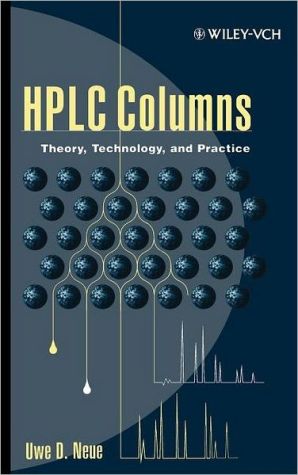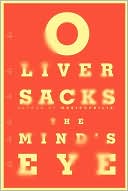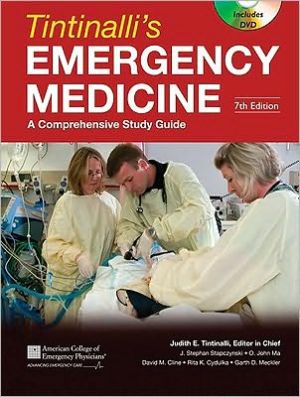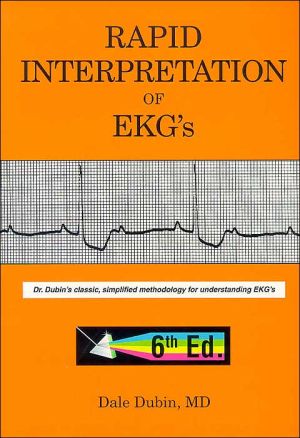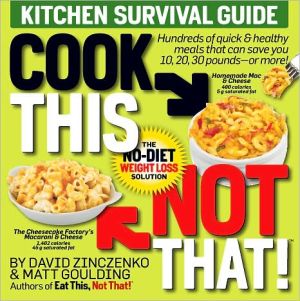HPLC Columns: Theory, Technology, and Practice
An in-depth guide to HPLC column technology High-performance liquid chromatography and its derivative techniques have become the dominant analytical separation tools in the pharmaceutical, chemical, and food industries; environmental laboratories; and therapeutic drug monitoring. Although the column is the heart of the HPLC instrument and essential to its success, until now, no book has focused on the theory and practice of column technology. HPLC Columns provides thorough, state-of-the-art...
Search in google:
An in-depth guide to HPLC column technology High-performance liquid chromatography and its derivative techniques have become the dominant analytical separation tools in the pharmaceutical, chemical, and food industries; environmental laboratories; and therapeutic drug monitoring. Although the column is the heart of the HPLC instrument and essential to its success, until now, no book has focused on the theory and practice of column technology. HPLC Columns provides thorough, state-of-the-art coverage of HPLC column technology for the practicing technician and academician alike. Along with a comprehensive discussion of the chemical and physical processes of the HPLC column, it includes fundamental principles, separation mechanisms and available technologies, column selection criteria, and special techniques. Special features include: * Comprehensive overview of state-of-the-art HPLC column technology * Explanation of the underlying principles of HPLC columns * Methods for selecting columns * Practical advice on using and applying columns, including examples * Section by M. Zoubair El Fallah on methods development * Special techniques, including preparative chromatography, continuous chromatography, and the simulated moving bed * Troubleshooting section HPLC Columns helps laboratory practitioners make better choices in column selection, methods development, and troubleshooting: it is also an excellent textbook for graduate-level courses and HPLC short courses. Booknews Laboratories in the pharmaceutical, chemical, food, and environmental industries have become dependent on the analytical separation tools based on high-performance liquid chromatography (HPLC) technologynow celebrating its 25th anniversary. For both the lab practitioner and graduate-level researchers, Neue (chemist, Waters Corp.; Milford, MA) covers the prerequisite knowledge base to facilitate column technique selection, methods development, and the inevitable troubleshooting. Considerations include: column design, chemistry, maintenance, packing and testing; methods development; and variants of chromatography (e.g. size-exclusion, normal-phase, reversed-phase, and ion-exchange). Instructor-oriented appendix with two experiments (one involving Kool-Aid). Annotation c. by Book News, Inc., Portland, Or.
Preface1Introduction12Theory of Chromatography63Column Design414Physical Properties of HPLC Packings815Column Packing and Testing936Column Chemistry1067Column Selection1308Size-Exclusion Chromatography1409Normal-Phase Chromatography16410Reversed-Phase Chromatography18311Hydrophilic Interaction Chromatography21712Ion-Exchange Chromatography22413Hydrophobic Interaction Chromatography25014Special Techniques26115Preparative Chromatography27616HPLC Methods Development29617Column Maintenance342AppTeaching Column Chromatography380List of Symbols383Index389
\ BooknewsLaboratories in the pharmaceutical, chemical, food, and environmental industries have become dependent on the analytical separation tools based on high-performance liquid chromatography (HPLC) technology<-- >now celebrating its 25th anniversary. For both the lab practitioner and graduate-level researchers, Neue (chemist, Waters Corp.; Milford, MA) covers the prerequisite knowledge base to facilitate column technique selection, methods development, and the inevitable troubleshooting. Considerations include: column design, chemistry, maintenance, packing and testing; methods development; and variants of chromatography (e.g. size-exclusion, normal-phase, reversed-phase, and ion-exchange). Instructor-oriented appendix with two experiments (one involving Kool-Aid). Annotation c. by Book News, Inc., Portland, Or.\ \
